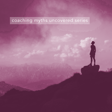
The Myth of "By-the-Book" Coach
Is a coach automatically “good” just because they follow the rules? In this episode of PRIME SPACE, Elias Scultori continues the Coaching Myths Uncovered series by challenging the belief that flawless technique alone defines coaching excellence.
Elias explores why rules and competencies, while essential, are only the framework—and not the essence—of coaching. He introduces the balance of Form and Flow, explains the Japanese concept of Shu-ha-ri as a path toward mastery, and highlights the risks of relying solely on technique without depth.
Listeners will gain insight into:
- Why coaching is a balance between art and science
- How to move beyond “checking boxes” to embody the essence of standards
- The importance of reflective practice in balancing form and flow
- Common habits and excuses that derail growth
- The ongoing journey of mastery every coach must commit to
If you’ve ever wondered whether playing strictly “by the book” makes for a great coach—or if there’s something more—this conversation will challenge your thinking and deepen your practice.
Watch the "Coaching Myths Uncovered" event on YouTube.



















